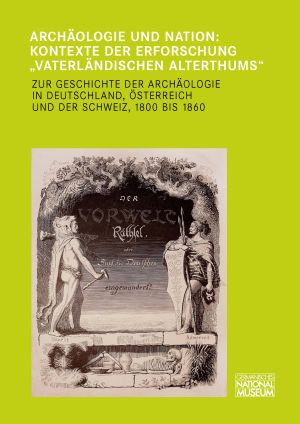How to Cite
License (Chapter)

This work is licensed under a Creative Commons Attribution-NonCommercial-NoDerivatives 4.0 International License.
Published
1806 – Geschichtsverlust und Flucht in die Geschichte
1806 – Lost History and Historical Escapism
In the first week of August 1806, the German people lost their confederation, the Holy Roman Empire, and with it their shared history. When events settled down again after the upheavals of the Napoleonic Wars and the Congress of Vienna, German intellectuals embarked on a search for German history. It was a search for the lost structure of nationhood. However, since all the dynasties still ruling had enriched themselves from the dissolution of the Empire at the expense of the territories which had disappeared, any reference to contemporary history was tabu. The early modern Holy Roman Empire was now systematically discredited in order to justify its dissolution. Protagonists of the nationalist movement could not, therefore, seek precedence and inspiration in the Empire which had foundered in 1806. Instead, Germans took collective refuge in the Middle Ages or the even earlier era of pagan prehistory. This context offered ideal conditions for the emergence of historical societies, Germanic philology, the German Historical School, the art of Romanticism, collections of medieval art, and the study of ‘Germanic antiquity’.







